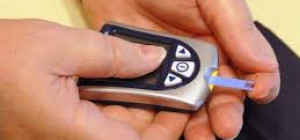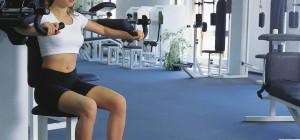A concussion is a form of a traumatic brain injury caused by a hard blow to the body, head or an accidental fall. In case of concussions, there may not be any visible signs of a serious brain injury. Although you can expect other signs like cuts or bruises on the face or head.
Remember that you don’t always have to lose consciousness to confirm having a concussion. Some people do show this symptom such as passing out right after the clash. But many don’t. So don’t always think that concussion is completely dependent on the symptom of unconsciousness.
Concussion is a serious injury and is definitely not one to be trifled with. In this article I am going to discuss this injury in greater detail. If you are in contact sports, this will definitely come in handy for you.

Causes of a concussion
Your brain’s a soft organ that’s surrounded by cerebrospinal fluids and protected by your hard skull. The cerebrospinal fluids act as a form of cushion that prevents your brain from banging into the skull.
But in case of a hard clash or an accidental head-on fall, your brain crashes into the skull; a reason for which concussion happens.
Some common causes of concussion are:
- Falls
- Fights
- On field clashes
- Crashes and accidents
Concussions commonly occur in contact sports such as soccer, hockey, football and boxing.
Common symptoms of a concussion
Like I said before, concussions are not so easy to detect. Common concussion symptoms range from mild to severe that can last for hours, days, weeks or even months.
Some common symptoms are:
- Inability to think clearly
- Inability to concentrate
- Inability remember new information
- Headache, nausea as well as vomiting
- Blurry vision
- Light or noise or both sensitivity
- Balance issues
- Too much fatigue
- Less sleep than usual
Young children can also experience concussion for any sorts of clashes on the field. In many cases, it’s immensely difficult to detect whether the child has suffered a concussion or not. Some common symptoms to look out for are:
- Change in behavior
- More and more crying than usual
- Headache that doesn’t go away
- Trouble in walking and loss of balance
If you feel that the symptoms are quite serious and beyond your control, don’t just procrastinate. Consult a medical professional immediately.
DIY treatments
In case of concussions, some people feel immediately better after a few hours. Others might experience symptoms for a few weeks to even months.
Here are a few DIY (Do-It-Yourself) tips that you can implement to treat concussions.
- Don’t try to do too much within a short time. Take it easy during the day. Get plenty of sleep. Complete rest is the key to complete recovery.
- Avoid taking controlled substances and alcohol.
- Avoid doing mentally and physically demanding activities. This includes the ones like exercise, homework, video gaming, text messaging, working on a computer etc.
- DO NOT drive a car under any circumstances during your recovery period unless your doctor advises you to.
- Use ice packs to alleviate any swelling (if you experience any).
- You can utilize pain medicines as directed by your physician. You can also use over the counter medicines such as paracetamol, acetaminophen and ibuprofen to relive pain.
How to prevent concussion
Better be on the safer side. You can certainly do a few things to the best of your abilities to keep concussion at bay. Take a peek.
- Wear the seat belt of your car each time you take it out for a drive. It might sound too petty but trust me; at the time of any accident (God forbid its occurrence), this practice can actually save an individual’s life.
- DO NOT drive under intoxication.
- Wear a protective head gear in games that allow it (such as bike riding, baseball, football).
- Always wear a helmet when riding a motor cycle. The helmet aids a lot in protecting your skull.
A final word of advice before signing off…
Do give special attention to your child and make sure that s/he knows the basic rules of bicycle and road safety before you allow him/her to go for bicycling or skateboarding. Some of the most serious concussions happen as a result of deliberate road accidents. So better stay on the safer side as much as possible.







